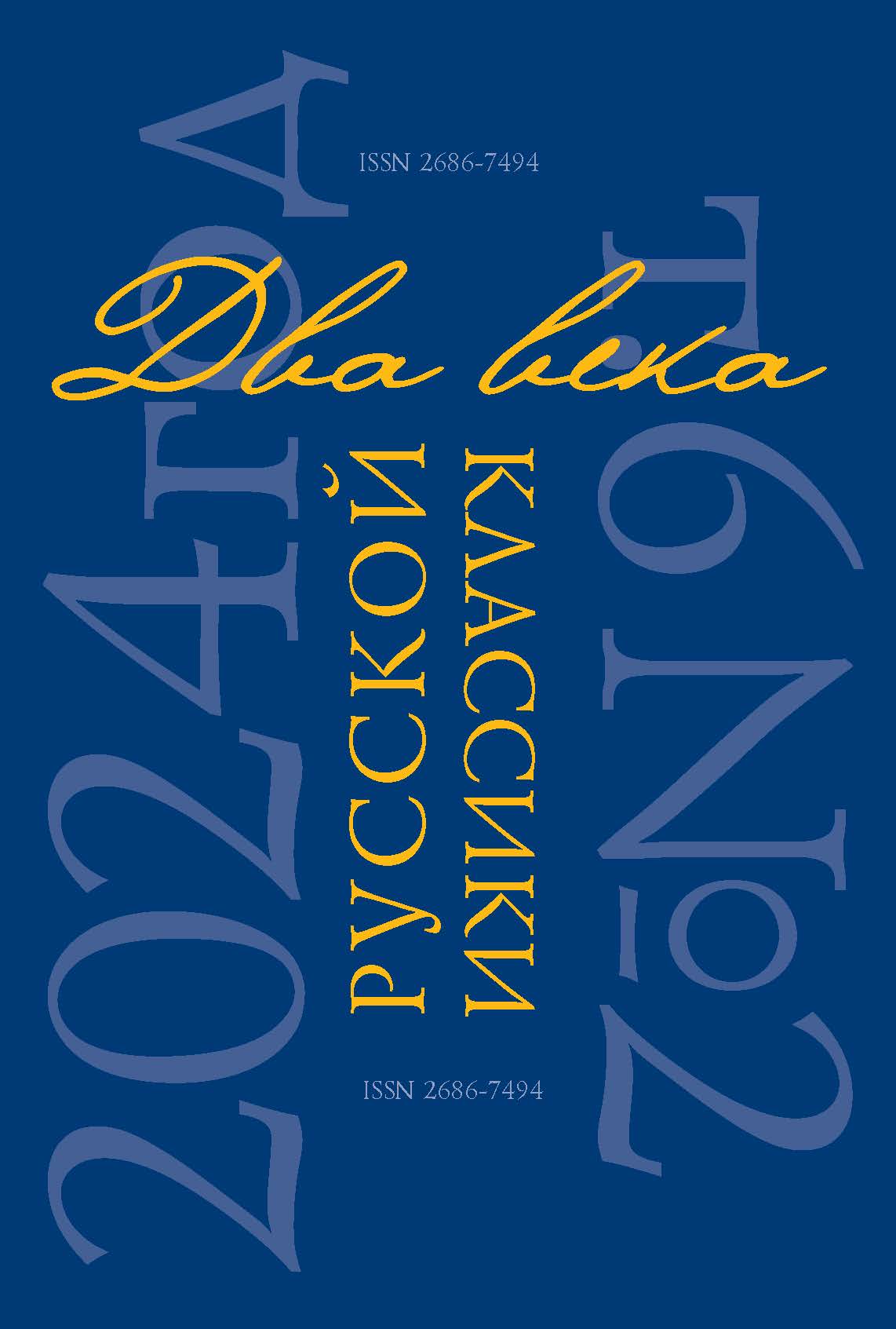Acknowledgments: The reported study was funded by Russian Foundation for Basic Research (RFBR), project number 19-012-00070A.
Abstract:
The article continues the investigation of textological issues associated with the surviving draft translation of the comoedia palliata The Asses (Asinaria) by Plautus, made by A. N. Ostrovsky from Latin. For the translation of Plautus’ Asinaria, the edition remains a problem: arguments are offered both for and against Levée (1820) as the basic source. The article reconstructs in detail the biographical and creative context of this translation, which was supposed to be a contribution to the formation of a democratic theater. The author of the article argues that although we cannot say for sure that Levée was the main or the only source of the translation, a lot in the Russian text says about Ostrovsky’s highly likely intentional repulsion of the Levée’s conception of Roman drama. In Levée’s edition, the French parallel translation and rare commentaries should have made Plautus one of the Latin classics, while Ostrovsky emphasizes the non-classical and lowbrow moments in Plautus. This explains both the decisions in the preparation of the manuscript and a number of accents that he deliberately made in this alleged rejection of the French translation, as well as the refusal to rely on the French translation even in difficult cases and work only with the Latin original, despite the inevitable translation errors.
References
Albrecht, M. von. Istoriia rimskoi literatury [History of Roman Literature], vol. 1, authorized translation by A. I. Lyubzhin. Moscow, Greko-latinskii kabinet Publ., 2003. 704 p. (In Russ.)
Markov, A. V. “Perevody A. N. Ostrovskogo s latinskogo iazyka v tekstologicheskoi perspektive. Chast’ 1. ‘Getsira’ Terentsiia i frantsuzskii perevod-posrednik” [“Textual Criticism of Ostrovsky’s Translations from Latin. Part 1: Terence’s Hecyra and the French
Intermediary Translation”]. Dva veka russkoi klassiki, vol. 3, no. 4, 2021, pp. 146–163. (In Russ.) https://doi.org/10.22455/2686-7494-2021-3-4-146-163 (In Russ.)
N’iu, K. A. “Rimskaia komediia na russkoi stsene: komediia A. N. Ostrovskogo ‘Ne bylo ni grosha da vdrug altyn’ i ‘Kubyshka’ Plavta” [“Roman Comedy on the Russian Stage: Alexander N. Ostrovsky’s There Was Not a Penny, But Suddenly Altyn and Plautus’ Aulularia”]. Studia Litterarum, vol. 4, no 1, 2019, pp. 138–159. https://doi.org/10.22455/2500-4247-2019-4-1-138-159 (In English)
Filippov, V. V. “Komediia Plavta ‘Osly (Asinaria)’ v perevode A. N. Ostrovskogo. K istorii voprosa” [“Plautus’ Comedy The Asses (Asinaria) Translated by A. N. Ostrovsky. On the History of the Issue”]. Lomonosovskie chteniia 2008 [Lomonosov Readings 2008]. Moscow, Lomonosov Moscow State University Publ., 2008, pp. 279–281. (In Russ.)









